
This is Apparently Why Your Instagram Photos Aren’t Reaching Your Followers
Instagram head Adam Mosseri claims that there are two reasons why your post isn't reaching all your followers and it's apparently got nothing to do with the algorithm.

Instagram head Adam Mosseri claims that there are two reasons why your post isn't reaching all your followers and it's apparently got nothing to do with the algorithm.

An investigation has found that the Instagram algorithm pushes suggestive footage of children and overtly sexual videos to adults on the platform who only follow children.
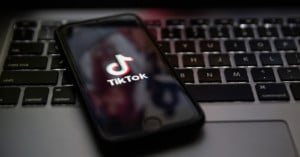
TikTok users in Europe will soon be able to opt out of its powerful content-selection algorithm as the app prepares to comply with the European Union's (EU) new Digital Services Act (DSA).

Instagram has revealed how it recommends content to users in order to dispel “misconceptions” about how the app’s algorithm.
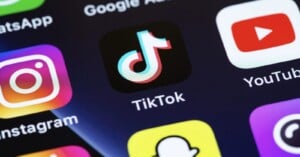
The state of Arkansas is suing Meta and TikTok, accusing the social media platforms of misleading consumers about the safety of children on its "addictive" platforms and deceiving users about the protection of their private data.
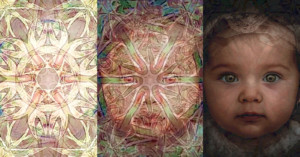
An artist spent four years creating geometric art that forms photorealistic portraits when laid on top of each other.
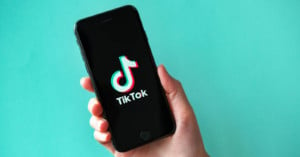
TikTok is setting a 60-minute daily screen time limit for users who are under the age of 18.

TikTok has admitted that its own employees can decide what videos go viral on the platform.

Tech company executives could face jail time in the United Kingdom if their social media platforms knowingly fail to protect children online.

TikTok will start telling users why it has recommended videos in their feeds amid demands from campaigners for more transparency about its algorithm.
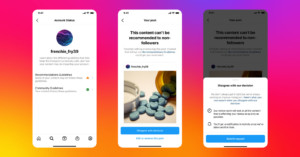
Instagram is expanding its Account Status page to better help users with professional accounts understand if and why their content is eligible to be recommended to non-followers, and what it can do to change that if it is not.

New data has revealed that the majority of creators feel "screwed" by large social media platforms and their algorithms.

Artificial intelligence-powered (AI) image generators have exploded in popularity and apps like DALL-E, Midjourney, and more recently Stable Diffusion are exciting and tantalizing technology enthusiasts.

What a week it has been for the world's largest photo-sharing app, although we are not sure if we can still call it that. Instagram, and its parent company Meta, has hit the headlines every day, and frankly, it has been a bit of a mess.
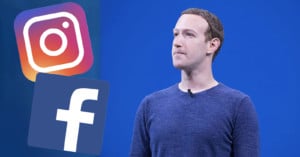
Instagram and Facebook are going to show even more posts from accounts that users do not follow -- after Meta CEO Mark Zuckerberg announced that the company plans to "more than double" the amount of "recommended" content that appears in users' feeds by the end of next year.

Artificial intelligence (AI) can use a person's brainwaves to see around corners and create images of objects the human eye can not directly see.
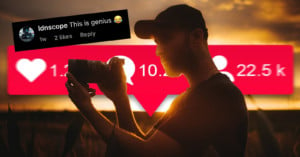
A photographer says he has tricked the Instagram algorithm into once again pushing his photos by leveraging the platform’s preference for Reels to his advantage.

According to a new report, Facebook has decided to make its feed feel more like TikTok in an attempt to better compete against what has become the biggest threat to the social media giant's bottom line.

An algorithm that was originally developed to map the stars is also used to track whale sharks for the sake of conservation efforts.

A pair of Stanford University astrophysicists have proposed a new way to use gravitational lensing that would be up to 1,000 times more precise than current methods. The hope is to use the concept to take better photos of distant planets.

In good news for photographers who post their own images, Instagram are planning to tweak its algorithm to "value original content more."

Photographs are made with the help of light, but what if portraits of people could be made with the sound of their voices? AI researchers have been working on reconstructing the face of a person using only a short audio recording of that person speaking, and the results are eerily impressive.

A new report found that Facebook was accidentally elevating harmful content for the past six months instead of suppressing it. A second report found that its internal policies may have resulted in the underreporting of photos of child abuse.

Researchers from Cornell University have designed a photo-taking robot that understands aesthetically pleasing composition. It already excels at photos for Real Estate or AirBNB, but could be trained to use its skills anywhere.

A new bipartisan bill has been introduced into the United States Senate that takes aim at algorithmic-based feeds like those on Facebook and Instagram. The bill would direct two government agencies to investigate ways to add friction to content sharing.

Instagram, still scrambling to recover its public image amid repeated reports that its product is dangerous for young people, will push "potentially harmful" content farther down a user's feed, but won't hide it entirely.

A bipartisan group of House lawmakers has introduced a new bill that would make it mandatory for services that use algorithms to serve content to offer a version that allows users to turn that feature off.

A new report shows that Instagram is working on a new Favorites feature that will make it possible to tell the app what content it should prioritize.

Instagram is looking to focus its attention on competing directly with TikTok and as a result, its head Adam Mosseri says that the popular app is no longer a photo-sharing app, but will shift to entertainment, video, and shopping.
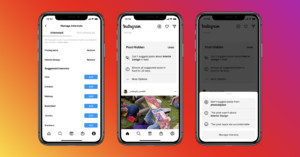
Instagram is reportedly testing a feature with a "small number" of users where its "suggested posts" feature will expand beyond just when you've reached the end of your feed and will be mixed throughout a browsing experience, possibly coming ahead of posts from those users follow.